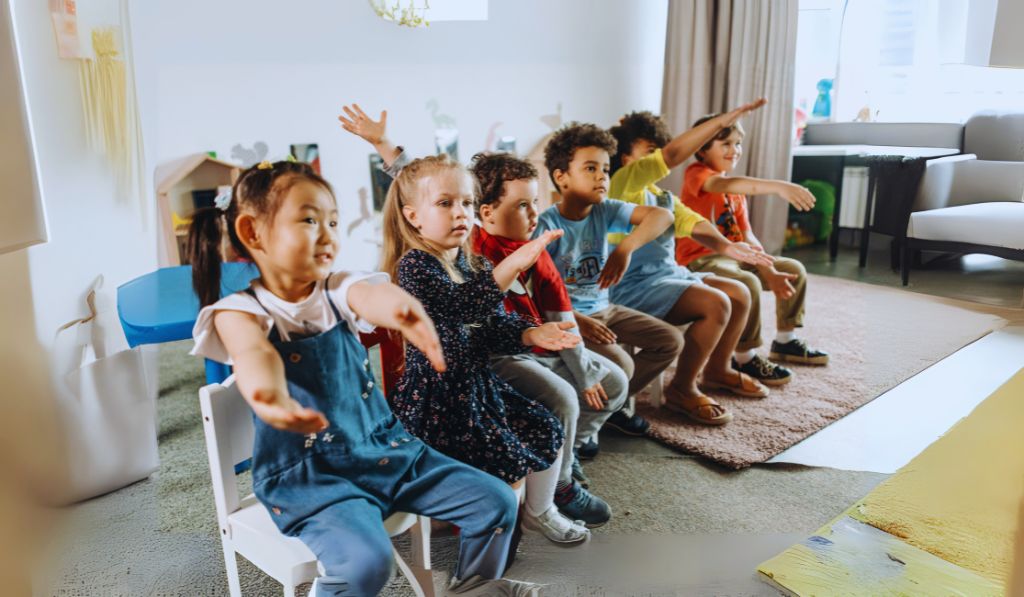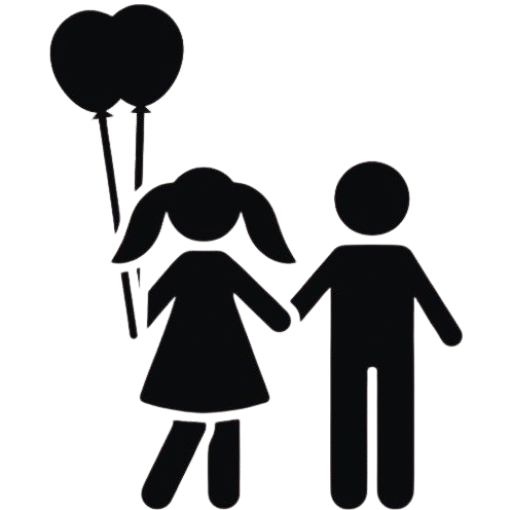As a family regulation professional with years of experience in navigating the complicated relationships among youngsters, parents, and network individuals, I’ve encountered this query endless times:
“Is it a felony to yell at a person Else’s Child?” The solution isn’t as sincere as you might anticipate. When you find yourself in conditions related to different humans’ children, knowledge of the felony and moral barriers turns into critical for suitable conduct.
In contemporary interconnected communities, interactions with Else’s Child out of doors and your instant family are inevitable.
Whether you are at playgrounds, schools, wearing activities, or community gatherings, you may encounter youngsters whose conduct would possibly on occasion test your staying power.
However, before you react, it’s critical to understand wherein the legal traces are drawn and what ethical concerns should manual your response.
Legal Considerations When Interacting With Other People’s Children

When you improve your voice at an infant who is not yours, you’re coming into a criminal gray location. In maximum jurisdictions, really elevating your voice at someone Else’s Child isn’t always explicitly outlawed.
However, this does not imply you have carte blanche to verbally area children who are not below your care.
The prison difference often hinges at the specifics of your interaction. While a temporarily improved voice saying “Stop that!” may not go legal barriers, sustained yelling, threats, intimidation, or language that might be categorized as verbal abuse would possibly constitute harassment or even emotional abuse underneath sure circumstances.
Potential Legal Consequences
If your interactions with someone else’s toddler increase beyond reasonable conversation, you can face felony repercussions along with:
- Harassment prices
- Restraining orders
- Civil court cases for emotional misery
- Child endangerment claims in excessive cases
Remember that mother and father have extensive prison authority over their Else’s Child upbringing, consisting of determining who can care for their baby and the way.
When you yell at someone else’s child, you’re doubtlessly infringing in this parental proper, which courts usually guard pretty vigorously.
Jurisdiction-Specific Regulations
Legal requirements regarding interactions with minors range extensively across jurisdictions. Some locales have specific statutes addressing verbal conduct towards youngsters, even as others depend upon broader harassment or disturbance legal guidelines.
As a fashionable rule, actions that could moderately be perceived as threatening, dangerous, or distressing to an infant may also violate local ordinances or country legal guidelines.
Ethical Dimensions Beyond Legality
Even when an action isn’t always strictly unlawful, moral considerations ought to guide your conduct towards Else’s Child. When you yell at someone else’s infant, you’re probably:
- Causing emotional distress
- Undermining their sense of safety
- Modeling irrelevant struggle decision
- Diminishing their shallowness and self assurance
- Children are still growing emotionally and psychologically.
- Your phrases, specially whilst added with intensity, may have lasting consequences that extend a long way past the on the spot interplay.
Respecting Parental Authority
Ethically, parental authority deserves great appreciation.
Parents have established disciplinary tactics, conversation patterns, and barriers specific to their youngsters.
When you interject along with your own disciplinary techniques especially physical ones you are undermining the discerns authority and potentially contradicting their set up parenting framework.
This does not suggest you must stay silent whilst witnessing certainly concerning conduct, but your method topics noticeably.
The Community Trust Factor

Communities function on mutual belief and respect. When you subject any other individual’s infant through yelling or harsh words, you’re probably eroding this community material.
Other parents might also end up wary of permitting their children around you, and an atmosphere of distrust can expand fast.
Read also: Life Insurance and Child Support in Texas: What Beneficiaries Need to Know
Potential Consequences of Yelling at Other People’s Children
When you yell at a Else’s Child who is not yours, the mental effect can be massive.
Unlike your very own children, who may be acquainted with your communication fashion and feature the safety of your unconditional love, another individual’s toddler lacks this context. Your raised voice might cause:
- Anxiety and fear responses
- Feelings of public humiliation
- Confusion approximately appropriate conduct
- Diminished feel of safety in social settings
Damaged Relationships with Parents
Few matters trigger a greater defensive reaction than perceived aggression towards one’s baby. When you yell at someone else’s toddler, you’re probably harming your relationship with the dad and mom, doubtlessly irreparably. Parents may also view your moves as:
- Overstepping limitations
- Disrespecting their parental authority
- Demonstrating terrible judgment
Revealing concerning man or woman developments
These perceptions can give up friendships, create neighborhood tensions, and even impact professional relationships if the incident takes place in work-adjacent settings.
Modeling Inappropriate Behavior
Children research by looking at grownup behavior. When you lodge yelling as a way of correction, you are modeling this as the precise response to frustration or confrontation. This can perpetuate cycles of reactive, emotion-pushed communique in preference to considerate, respectful interplay.
Effective Alternatives to Raising Your Voice
Rather than yelling, do not forget addressing behavior with calm, clean communication.
For example, in preference to shouting “Stop strolling!” you may technique the child at eye level and say, “I notice you are running in a place wherein you would possibly journey or come across a person. Would you please stroll even as you are inside?”
This technique:
- Preserves the kid’s dignity
- Explains the motive at the back of your request
- Models respectful communique
- Achieves the favored final results without emotional escalation
Engaging with the Parent
When feasible, redirect your worries to the parent in preference to addressing the Else’s Child at once. This method respects the parental role at the same time as nevertheless addressing the scenario:
“I observed Jamie is mountaineering quite excessive on that shape. I’m a piece concerned about safety. Could you think of retaining a watch on that?”
This permits the determined to deal with the state of affairs in step with their very own parenting philosophy whilst nonetheless acknowledging your legitimate challenge.
Setting Clear Environmental Boundaries
If you’re in a role of temporary authority possibly web hosting youngsters in your private home or supervising a set activity you could establish clear expectancies without resorting to yelling:
“While you’re in my backyard, we’ve got three crucial rules: no hiking on the fence, live wherein adults can see you, and be gentle with the garden vegetation.
Building a Culture of Collective Responsibility
Communities thrive while there’s a sense of collective obligation for kid’s welfare without overstepping the man or woman circle of relatives boundaries. You can contribute to this lifestyle by using:
- Offering help rather than grievance
- Supporting crushed dad and mom
- Modeling constructive conversation
- Creating infant-pleasant environments
Fostering Open Communication Between Adults
Rather than addressing youngsters directly in moments of problem, work to establish open communique channels with parents for your network.
When mother and father feel you recognize their authority, they are more likely to be receptive to thoughtfully expressed issues about their toddler’s conduct.
Community Guidelines and Expectations

In prepared settings like colleges, sports groups, or community associations, truly set up community recommendations can help navigate those complex situations.
These shared expectancies create a framework that allows for appropriate intervention without singling out particular kids or parents.
The Critical Role of Empathy
When faced with hard infant behavior, training empathy means searching beyond the instant movements to apprehend ability underlying needs or circumstances.
A child who is being disruptive is probably:
- Overwhelmed by sensory input
- Seeking interest because of feeling not noted
- Responding to strain or modifications at home
- Still growing impulse control suitable to their age
This attitude shift often diminishes the impulse to yell and opens pathways to extra positive responses.
Remembering Your Own Parenting Challenges
If you are a parent yourself, keep in mind moments when your very own toddler’s conduct changed into hard, mainly in public settings.
The embarrassment, frustration, and now and again helplessness you felt in those moments are possibly much like what different dad and mom experience.
This shared vulnerability can foster compassion in place of judgment.
Considering Developmental Appropriateness
Else’s Child of different ages have vastly distinct talents for self-law, expertise consequences, and decoding social cues.
What may seem like planned misbehavior should in reality be totally age-appropriate exploration or regular developmental testing of limitations.
Creating Supportive Environments for Children
There are conditions where instant intervention with someone else’s Else’s Child isn’t always handiest suitable but essential.
If a child is in instantaneous danger or putting others at hazard, your intervention is justified although your method nonetheless topics extensively.
Even in pressing situations, purpose for the least intrusive powerful intervention.
A corporation “Stop!” accompanied via evidence is leading to prolonged yelling or physical grabbing in maximum instances.
Positive Reinforcement Across Community Boundaries
Rather than focusing solely on correcting undesirable conduct, look for possibilities to positively toughen top choices across network boundaries:
- “I noticed how patiently you waited your turn on the slide.
- That became in reality thoughtful of the other children.”
- This method builds children’s inner motivation for positive conduct without overstepping parental authority.
Creating Child-Friendly Spaces
- Design your environments whether home, commercial enterprise, or network area with the kid’s developmental wishes in mind.
- Spaces that accommodate a kid’s herbal strength, curiosity, and developmental stages evidently lessen friction points that could lead to disciplinary interactions.
- Legal Precedents That Shape Our Understanding
Defining Emotional Abuse in Legal Contexts
Courts have increasingly diagnosed that emotional and verbal abuse can cause large damage, mainly to Else’s Child.
While criminal definitions vary with the aid of jurisdiction, chronic yelling, name-calling, intimidation, or threats directed at an infant may constitute emotional abuse in intense cases.
Parental Rights vs. Community Intervention
Legal precedents continually affirm dad and mom’ huge rights to decide how their Else’s Child are raised, such as disciplinary strategies (within bounds of protection).
Courts commonly restrict 1/3-birthday party intervention to situations related to clean danger or harm, maintaining an excessive threshold for overriding parental authority.
School and Institutional Standards

In expert or institutional settings like colleges, daycare centers, or children businesses, specific legal requirements frequently govern grownup-toddler interactions.
These usually prohibit yelling as a disciplinary measure, recognizing each its ineffectiveness and capability for damage.
Recognizing Genuine Safety Concerns
There are circumstances where intervention with a person else’s baby becomes important despite the overall steerage to defer to mother and father. Clear protection emergencies encompass:
- A Else’s Child about to run into site visitors
- Dangerous physical altercations between youngsters
- A Else’s Child dealing with something unsafe
Medical emergencies
In these situations, instant, direct intervention is suitable, though it ought to nevertheless be done with as much appreciation and calmness as the state of affairs allows.
Reporting Suspected Abuse or Neglect
If you witness what seems to be abuse or severe forget about, your responsibility shifts from respecting parental authority to defending a vulnerable toddler.
All jurisdictions have mechanisms for reporting suspected child abuse, and plenty of have obligatory reporting necessities for positive experts.
Balancing Immediate Needs with Long-term Approaches
Even while on the spot intervention is vital, don’t forget the lengthy-time period approach.
A one-time emergency intervention ought to be accompanied with the aid of suitable conversation with mother and father or government in place of establishing yourself as an ongoing disciplinary discern within the Else’s Child lifestyles.
Educational Resources for Community Members
Communities gain while members have got admission to training in optimistic struggle resolution, in particular as it pertains to interactions with children.
These capabilities help adults navigate challenging situations without resorting to reactive behaviors like yelling.
Child Development Knowledge
Basic understanding of toddler development levels helps adults set reasonable expectations and respond as it should be to behavior that might in any other case appear frustrating or intentionally difficult.
Cultural Competence in Child-Rearing Practices
Parenting procedures range significantly throughout cultures. What may look like permissiveness in one cultural context is probably respectful autonomy-building in another. Cultural competence enables community individuals to keep away from misinterpreting variations as deficiencies.
Building Stronger Community Connections
Communities thrive when childcare is viewed as a collaborative duty inside suitable boundaries. This does not mean disciplining other humans’ youngsters, however as an alternative growing networks of assistance where parents can rely upon each other within agreed parameters.
Intentional Relationship Building
Strong adult relationships result in more powerful and respectful interactions regarding youngsters.
When you’ve established agreement with dad and mom, they are much more likely to be receptive to your concerns, and you are much more likely to understand their parenting method.
Restorative Practices After Conflicts
If a situation has escalated to yelling or struggle regarding someone else’s child, restorative strategies awareness on recovery relationships instead of assigning blame.
This would possibly contain honest apologies, paying attention to concerns, and setting up clearer barriers shifting ahead.
Creating a Culture of Respect for All Ages
- Acknowledging Else’s Child as Full Community Members
- Else’s Child deserve the identical primary respect afforded to adults.
- This doesn’t mean permitting disruptive conduct, however as a substitute addressing youngsters with the honor you’ll extend to any community member.
Modeling Respectful Disagreement
Children analyze battle decisions by watching adults navigate disagreements.
When you model respectful, answer-focused communique even in tough situations, you make contributions to children’s improvement of these crucial talents.
Balancing Authority with Respect

Authority and recognition are not jointly extraordinary.
The most effective interactions with Else’s Child whether or not your personal or others’ balance clean obstacles with essential respect for the kid’s humanity and developing autonomy.
Conclusion: The Balanced Approach to Community Parenting
The question of whether or not it is legal to yell at someone else’s child in the long run leads us to a extra important attention:
how we will foster groups where such interventions are rarely essential.
By constructing relationships based on mutual appreciation, communicating virtually about expectancies, and approaching children with developmental consciousness, we create environments wherein children thrive and adults do not often feel the need to resort to higher voices.
Remember that your interactions with Else’s Child and all youngsters make contributions to their understanding of how the sector works and the way people ought to treat one another.
By deciding on considerate responses over reactive ones, you’re now not just fending off potential criminal troubles; you are helping construct a greater respectful, empathetic community for all of us.
When in doubt, technique other human being’s Else’s Child with the identical care and consideration you’ll need prolonged to your own.
This golden rule of community parenting hardly ever leads us astray, legally or ethically.



